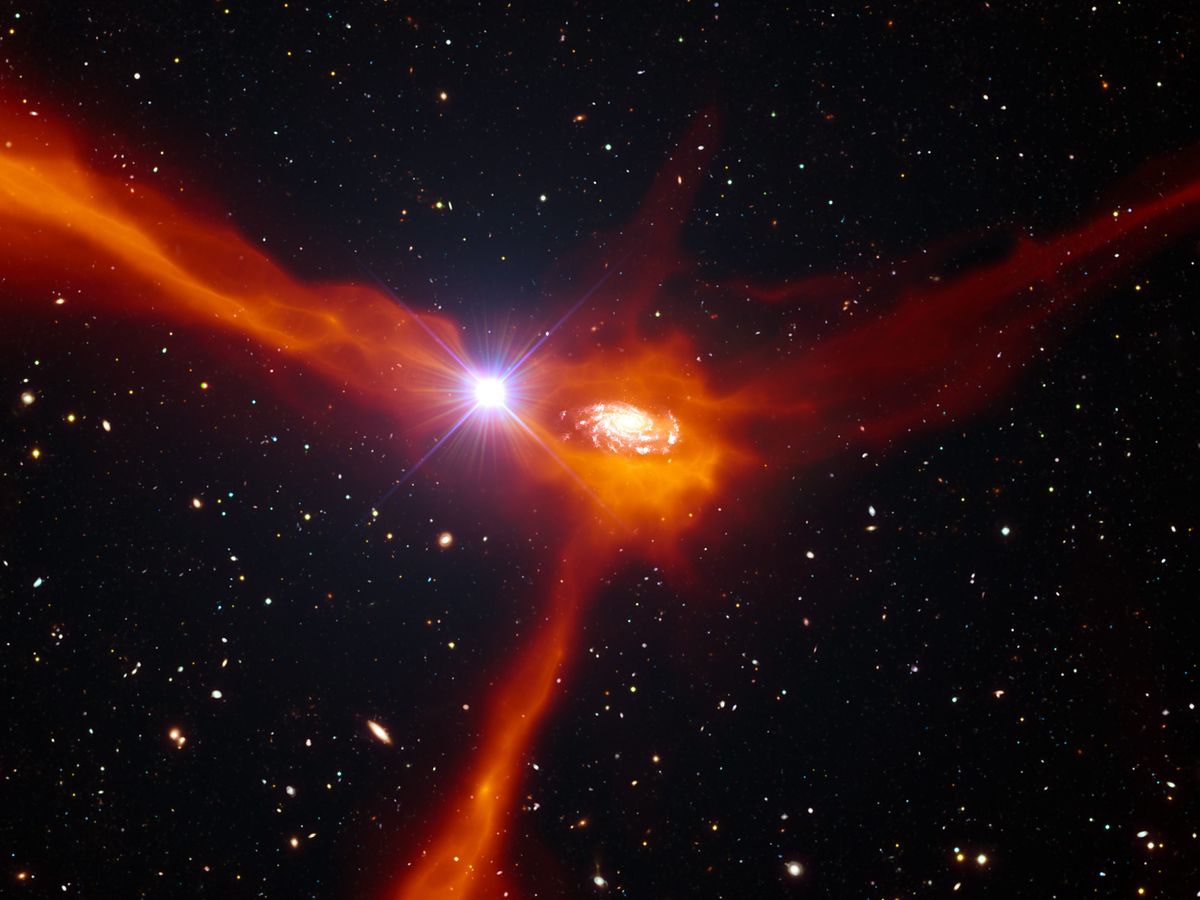The universe being here forever avoids the question of how all the (E) got here in the first place.
If we break the universe down to just different forms of (E) then a big bang is simple an expression of (E) into a region of space that is already part of the this universe.
It expands into itself so it never doubles.
Now how do we create a universe from nothing?
It took me the better part of 2 years to wrap my head around the fact that nothing probably occupies space and the fact that it does probably the reason quantum fluctuation happens and sets a balance.
Until that balance point quantum fluctuations dual particle creation probably don't annihilate each other and that is (E) and the building blocks of a universe.
Could be that simple that 0 has potential energy.
What version of the universe are we in?
#1 because a big bang is simply a phase of what is already here in the region of space/quantum fluctuation that is our universe already.
IMO a mistake to think of the big bang as a beginning.
I totally agree that a black hole is just compressed energy.
No crazy singularities and physics break down, just a region with the lack of activity/time so it can compress no further.
I also agree that time is simply activity.
A gravity well slows it and going fast also slows it.
Could be a property of quantum fluctuation, moving through or compressing .
All JMO but i think nature is going to tend to be in the simplest format possible.
On a side thought here is something to think about.
Quantum fluctuations activity happening all the time in all the universe.
Dual particle creation and destruction leaves behind temporary gravity. Dark matter?
Dual particle creation and destruction creates temporary energy.Dark energy?
IMO, The universe is expanding into 'The Infinite', so it can double. I also think 'the infinite' contains 'something', as explained in the quote from post 19 above:If we break the universe down to just different forms of (E) then a big bang is simple an expression of (E) into a region of space that is already part of the this universe.
It expands into itself so it never doubles.
"If you accept space is infinite, it would be too bizarre to think our universe is the only matter in this infinite space. It would mean stuff in our universe is a one-off special, an other-wise exception to an infinite void. There's no reason to believe any laws of physics could allow 'something' here and absolutely nothing any where-else. What enables or gives rise to something here, will enable or give rise for something to be everywhere- so no void! Stuff here, is not a special case - If there's something here, there's something everywhere!
Since there's no reason to believe our stuff and laws of physics are special, it's reasonable to assume stuff and laws are the same throughout 'the infinite'. This, in turn, means there's a connection or something in common throughout 'the infinite'. So I suggest the underlying commonality is just space and what it consists of, (quantum field/foam/fluctuations, aether, vacuum energy, dark energy or whatever)."
I prefer to change that to "Could be that 'the infinite' has, quantum field/foam/fluctuations or aether or vacuum energy/dark energy".Could be that simple that 0 has potential energy.
You use the phrase "time is", why not abandon time altogether, and say "there's no such thing as time, there's only activity"?I also agree that time is simply activity.
I like that, but obviously needs scientists to do the maths and verify it.Dual particle creation and destruction leaves behind temporary gravity. Dark matter?
Dual particle creation and destruction creates temporary energy.Dark energy?




